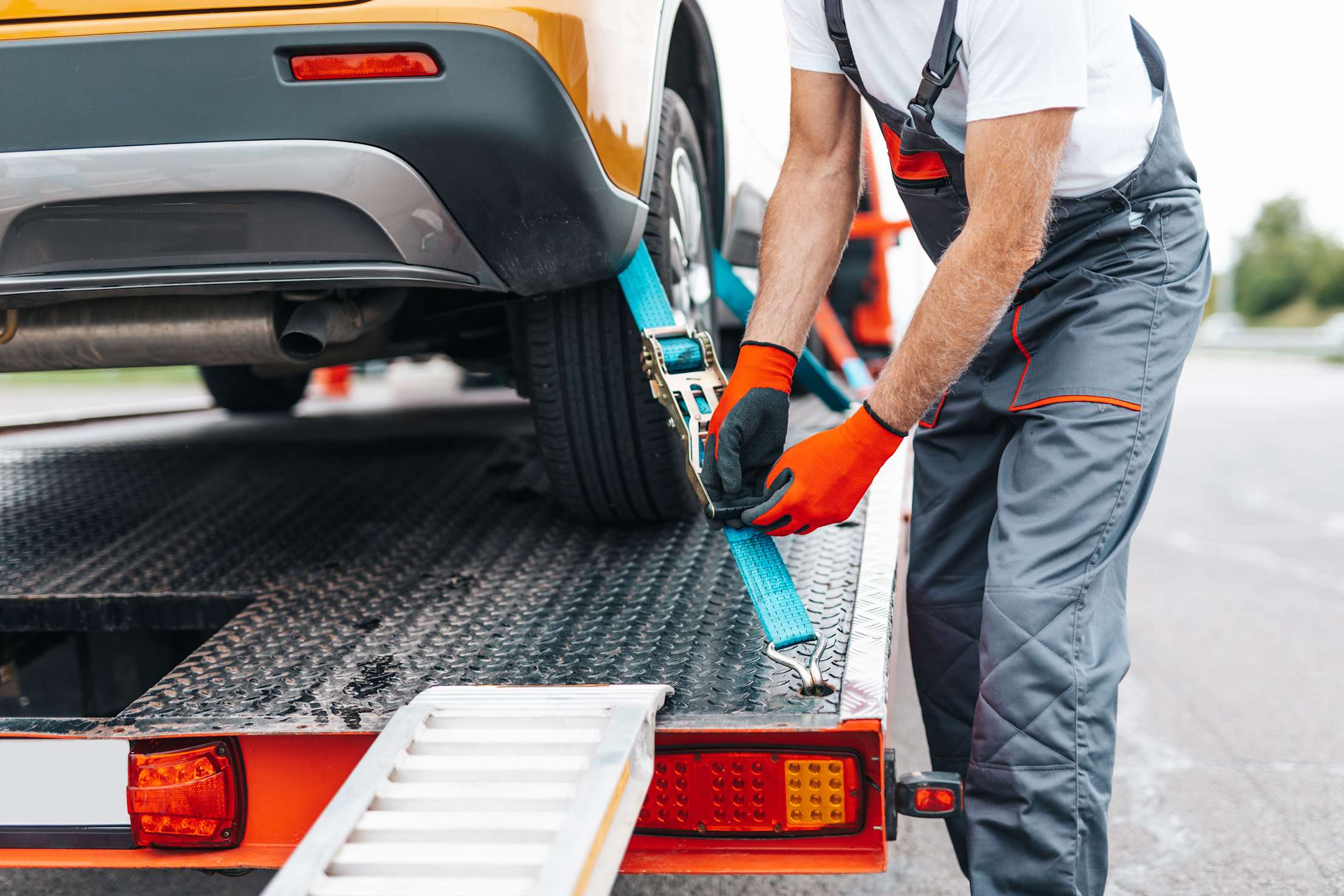
Do You Know What Your Car Warranty Covers?
Before you take your car to the shop, find out if the fix is covered under the factory warranty.

Nearly every new vehicle purchased from a dealership comes with a manufacturer's warranty, which is regulated by the Federal Trade Commission. “A manufacturer’s warranty covers repairs needed to correct defects in materials or workmanship,” says Keith Barry, autos writer at Consumer Reports. “It only covers manufacturer defects, not normal wear-and-tear items or abuse.”
If you’re having a problem with your vehicle, it’s worth taking a look at your warranty to make sure you’re not necessarily paying for repairs. You might be surprised by what’s covered and for how long.
What’s a car warranty?
The manufacturer's warranty is broken up into different categories. The most comprehensive warranty—often called a basic or limited warranty—lasts three years or 36,000 miles, whichever comes first, although some brands, namely Kia and Hunyadi, offer a longer warranty. This is what many people call “bumper to bumper” coverage. This warranty covers almost everything that might break down on your vehicle due to a defect. So if your car overheats or your air conditioning stops working, you’re probably covered during this period.
The powertrain warranty typically lasts until 5 years or 60,000 miles, whichever comes first, and it is significantly more limited. This warranty covers possible defects in the engine, exhaust manifolds, transmission, and drivetrain. Certain emissions components, such as your catalytic converter, may be covered under a warranty that extends a minimum of eight years or 80,000 miles.
Smart Tip: Most of these warranties are transferable to second (or third) owners. You can typically find manufacturer’s warranties online to check if any components on your used car are still under warranty.
“One thing to watch out for is that the warranty starts the day the car is first put into service,” says Barry. “So even if you have a 2013 car with a 10 year warranty, if it was first registered in March of 2012, that warranty has expired.” A Carfax report and an invoice from your dealership for service often includes this date, but you can also call your local dealership to confirm.
Hybrid and Electric Vehicle Coverage
If you own a hybrid or electric vehicle, your warranty coverage will include a minimum of eight years or 80,000 miles of coverage on your electric or hybrid battery. “Often, manufacturers add additional years and miles of warranty coverage to parts that are specific to a hybrid or EV,” says Barry. “For example, Toyota warranties its hybrid battery for 10 years from the date of first use or 150,000 miles, whichever comes first, which is longer than the vehicle’s overall warranty.”

What else is covered by a car warranty?
While components that wear down with regular use (such as tires and brake pads) usually aren’t covered under a standard manufacturer’s warranty, some car manufacturers do cover them for a limited time. For example, Subaru will cover wiper blade inserts and brake pads for three years or 36,000 miles, whichever comes first. It never hurts to ask while your car is already in for service, or read your warranty if you aren't at the dealership.
If your car breaks down due to a problem that is covered by your manufacturer's warranty, then towing to the nearest dealership is also covered.
Your older car that’s technically out of warranty might still have some coverages. When manufacturers determine that a part or component is frequently not functioning properly, they will release a technical service bulletin (or issue a recall if the problem is a safety concern). TSBs list the exact vehicles and conditions that qualify for this special coverage. Dealerships and many mechanics have access to TSBs, but you can also find out if your vehicle has any existing TSBs by searching the National Highway Traffic Safety Administration’s database under the “vehicle” tab. If you encounter a possible known problem, a dealership will diagnose your vehicle and determine if the condition you are experiencing falls under the TSB.
Your car may also have warranties for things such as outer body corrosion and seatbelts. The tires on your new car might also have their own warranty from the tire manufacturer for defects, not wear or damage from nails, potholes, or curbs.
What can void a car warranty?
It’s your responsibility as the owner to maintain your vehicle. If you neglect to follow the manufacturer’s maintenance intervals for services such as oil changes, your warranty claim for a related failure will likely be denied. For example, if you haven’t changed your oil in two years and your engine fails, the engine repair or replacement will likely no longer be covered as a part of your warranty.
Fixing your own car, taking it to an independent mechanic, or going to a quick lube cannot legally void your warranty according to the Magnuson-Moss Warranty Act. If a dealership employee tells you otherwise, you can make a complaint with the Federal Trade Commision. However, if the independent shop (or you if you're fixing your own car) damages something in the course of performing a repair, that component will not be covered.
Additionally, racing your car, using it for commercial purposes, and changing your car significantly (such as upgrading the suspension and installing much larger wheels) may also void your warranty. “But It’s more likely that an automaker won’t cover a specific failure, rather than voiding the entire warranty,” says Barry. The warranty is also likely to be void if the vehicle has a salvage title.